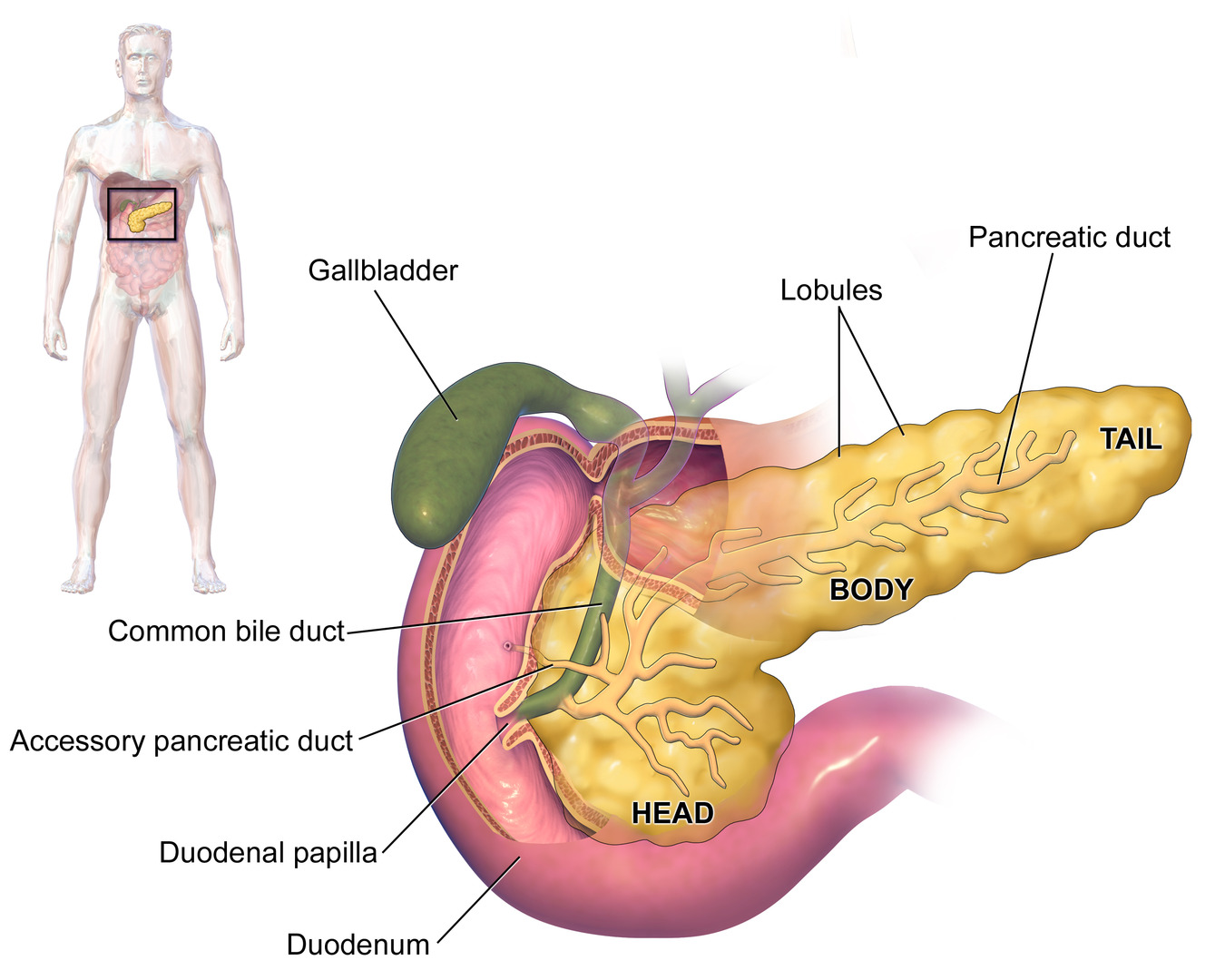Playlist
Show Playlist
Hide Playlist
VIPoma – Enteroendocrine Tumors
-
Slides EnteroendocrineTumors EndocrinePathology.pdf
-
Reference List Pathology.pdf
-
Download Lecture Overview
00:01 Next, we have another type of pancreatic Islet cell tumor, but this time it is vasoactive intestinal peptide-oma. 00:08 So, now, the pancreas and a tumor of it is now producing a VIP, oh, VIP, too much VIP. 00:18 With all this VIP, now the physiology behind this, if you remember, VIP physiologically down in the intestine is actually going to increase the secretion of chloride and water into the lumen of your intestine. 00:33 If you do this excessively, the WD acronym, you put that together gives you extreme water diarrhea. 00:41 With all of this diarrhea that is being flushed out, you are worried about potassium being lost as well. 00:46 So, therefore, severe significant hypokalemia. 00:50 Look for your potassium levels. 00:52 Now, 3.5 to 5.0 is normal, ml equivalence. 00:56 If you find your potassium levels to be a, let’s say 1.5, along with water diarrhea and all part of MEN 1, you should be thinking about a vasoactive intestinal peptide-oma and A is achlorhydria. 01:09 A couple of differentials that you should be thinking about with achlorhydria, what does that mean? That means that the gastric lumen inside the gastric in the stomach, you should not be putting your fingers in there because you won’t have a finger left when you take it back out because the acid will get rid of it, right? So, achlorhydria means no acid. 01:30 So, your gastric luminal pH will be elevated, it is not acidic. 01:35 Now, a couple of differentials with achlorhydria in addition include pernicious anemia, also something called Plummer-Vinson syndrome, correct? All of those may result in achlorhydria. 01:50 WDHA is what your focus should be on, VIPoma, where are you in the body? The pancreas, could all be part of MEN 1.
About the Lecture
The lecture VIPoma – Enteroendocrine Tumors by Carlo Raj, MD is from the course Pancreatic Disease and Diabetes.
Included Quiz Questions
Which electrolyte is vasoactive intestinal peptide charged with transporting into the intestinal lumen?
- Chloride
- Sodium
- Potassium
- Calcium
- Magnesium
Which of the following is not a characteristic of the WDHA syndrome?
- Increased gastric acid secretion
- Watery diarrhea
- Hypokalemia
- Elevated gastric luminal pH
- Dehydration
Customer reviews
5,0 of 5 stars
| 5 Stars |
|
1 |
| 4 Stars |
|
0 |
| 3 Stars |
|
0 |
| 2 Stars |
|
0 |
| 1 Star |
|
0 |
One of the best endocrine lectures out. Thank you Dr. Raj




